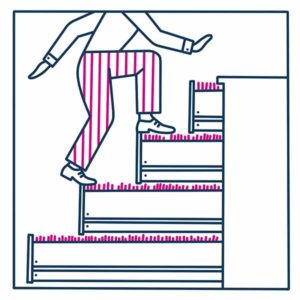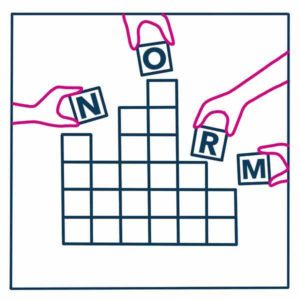Now that the annual performance review has fallen out of fashion, we have regular catch-ups – informal meetings to keep evaluations fresher.
Catch-ups are a great idea, if they’re done well. But if they’re done badly, they can waste time and worse, severely affect performance and wellbeing.
So let’s look at how to get catch-ups right
A catch-up is simply an agreement to meet. But what’s the structure? What happens? Do you set goals at each one? There are no set answers to these questions. Helpful, right?
Regular catch-ups are simply a pattern of sustained one-to-one support that help individuals perform at the highest level.
What that actually looks like is up to you and the person you’re catching up with.
So before you send a fortnightly 30-minute meeting request, stop and think. What are they expecting from this? Is it too much? Too little? Have you booked it during their busiest time of the week?
Always start with a conversation
What type of support do they need? When are they available? What happens if you need to postpone the catch-up? Will you set goals at each meeting?
And get granular on this expectation-setting. It’ll help keep energy and commitment high from both sides.
Regular catch-ups are good for wellbeing
And that means they’re good for business too.
You should be flexible to set the right expectations. Catch-ups should scale up or down depending on short-term needs, and depending on the individual and timings.
For important projects, catch-ups may need to be twice a week. But when it’s business-as-usual and you’re super busy, you may want to push it back to once a month.
Be flexible
How often you meet isn’t the only thing that’s flexible. Try a walking meeting if you don’t have time for a proper sit down. Or take 10 minutes out and have a standing meeting in the kitchen. You could even just grab lunch together.
It’s very important this flexibility works both ways: both parties are free to suggest mixing things up.
And don’t forget that some people may resist regular catch-ups in principle: it may just be too much facetime for them.
Don’t just catch up, feedback
Catch-ups are a good opportunity to give feedback in a more informal, relaxed environment than during the yearly review.
Start slow, especially if someone is resistant. Give a bit more feedback each time. And encourage them to do the same. We feel comfortable giving feedback if they are comfortable receiving it. And vice versa.
You don’t always have to talk shop
Not every catch-up has to focus on moving the dial on key metrics or personal growth. Just nurturing your relationship is worthwhile.
Sometimes a coffee and a chat is all you need. Building common ground and being vulnerable helps foster trust.
The informal, spontaneous nature of these catch-ups may also bring out ideas, actions or epiphanies that wouldn’t have emerged if you’d followed a more rigid plan.
Take a picture
Regular catch-ups with your team will give you an overall picture of what’s really happening in the organisation.
You’d never get such a rich picture from a bunch of once-a-year appraisals.
Share news and information so both parties are more informed and connected to the organisation. Things said in passing can end up offering invaluable insights that will make a project a success.
And never forget that catch-ups are as much about you asking questions as about providing support.
But they take up so much time
So does coffee with colleagues. So maybe combine the two.
Look, you can’t escape this fact. Regular catch-ups eat into your schedule – especially if you have a larger team.
If this bothers you, maybe it’s because you’re not seeing the value these catch-ups offer.
Just because regular catch-ups tend to be informal, doesn’t mean you should demand less of them.
They will cause more problems than you can solve
A manager’s job is to support and challenge (as is anyone’s, to be honest). So deal with it.
You can help people solve their own problems and offer advice, but regular catch-ups don’t suddenly give you more influence, time or ability to overcome obstacles.
This is why coaching can be a useful tool for regular catch-ups. The focus stays on the individual and their own path.
You may look like you’re showing preferential treatment
If your catch-up schedule is based on the individual’s needs, it only follows that some people will get more support than others.
On the surface this can look unfair.
Don’t feel the need to explain to everyone why you’re offering some people more time than others.
The key here is to keep repeating the message that you can provide more or less support based on need.
That gives your team the signal to be proactive: if they want more time or less time, they just need to ask.
The power of wellbeing is hard to overstate
Catch-ups are just one of a myriad of ways of improving wellbeing across your organisation, for individuals and the organisation alike.
So put your money where your mouth is and make wellbeing a priority. It’s a very compelling argument.







